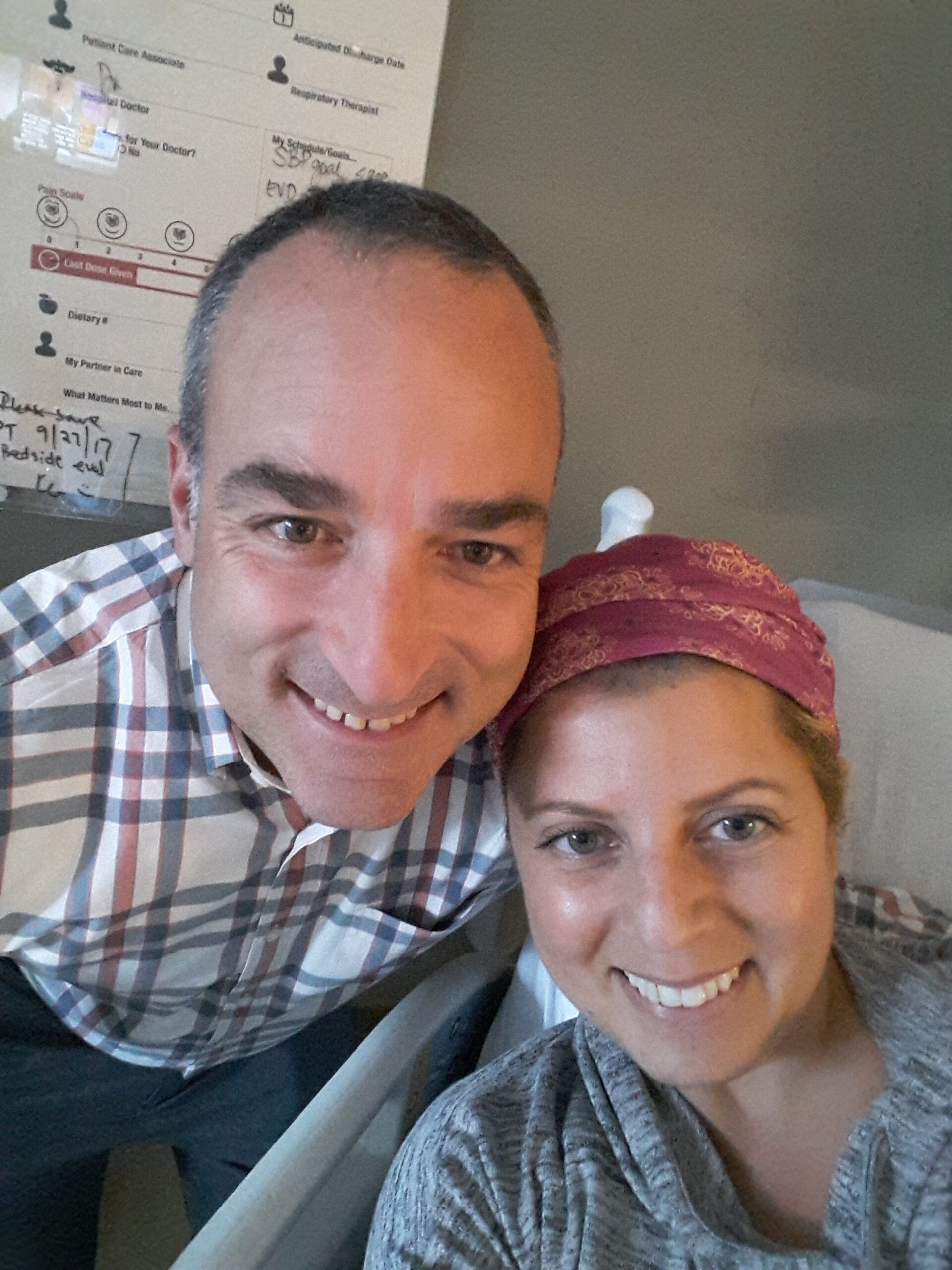It was 5:40 a.m. when Joe Senerchia heard his wife, Carrie Mazak, reciting the ABCs.
“I heard that if you think you’re having a stroke, you may not be able to recite the alphabet,” Mazak said. “I could, but it felt like an explosion went off in my head and my right leg was numb.”
Snerchia called 911 and at Jersey Shore Medical Center, a CAT scan revealed blood on Mazak’s brain.
After administering an angiogram to visualize the blood vessels in her brain, Dr. Pinakin R. Jethwa – a board-certified, dual-trained neurosurgeon at Atlantic NeuroSurgical Specialists (ANS) – discovered Mazak had a ruptured middle cerebral artery (MCA) aneurysm.
Brain aneurysms are typically treated with clipping – which requires opening the skull to place a small clip across the neck of the aneurysm to prevent blood from entering it – or endovascular coiling, a minimally invasive procedure that uses small coils – inserted through a tiny catheter in the blood stream – to promote clotting and block blood flow from entering the aneurysm.
“Minimally invasive doesn’t necessarily mean minimal risk,” Dr. Jethwa said. “In Carrie’s case, clipping would take a major risk – blood leaking back into the aneurysm or out onto her brain – off the table, decrease the chances of causing a stroke and ultimately lead to a better long-term recovery.”
Mazak returned home in just over two weeks. Today, she is neurologically intact, physically healthy and planning to return to teaching high school math.
“Patients like Carrie are the reason I went into neurosurgery,” Dr. Jethwa said. “It takes many years of training to become a neurosurgeon, and even more to become a dual-trained neurosurgeon. Seeing Carrie’s recovery makes it all worth it.”
Atlantic NeuroSurgical Specialists (ANS) is New Jersey’s largest neurosurgical practice and one of the most advanced in the country. For more information, visit www.ansdocs.com.

